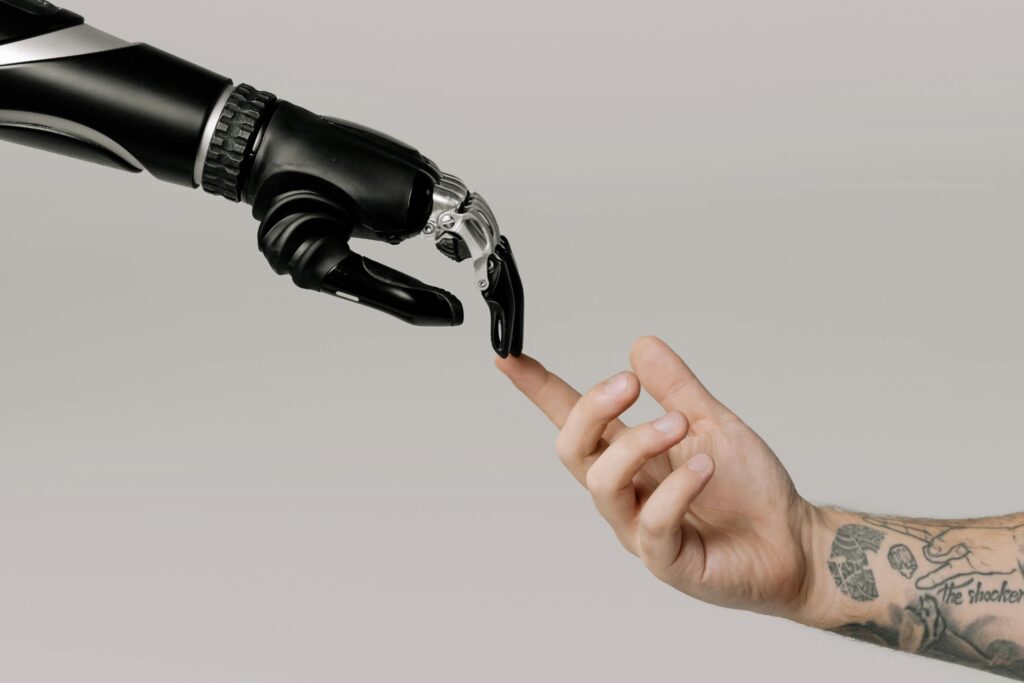
The AI revolution is not just a futuristic concept; it is a present-day reality. Artificial Intelligence (AI) is fundamentally transforming everyday life by optimizing processes, enhancing decision-making, and personalizing experiences across various sectors. This blog will explore the remarkable ways in which AI is reshaping our daily routines, industries, and societal interactions.
Understanding the AI Revolution: An Overview
Artificial Intelligence has made incredible strides in recent years, infiltrating numerous facets of our daily lives. From smart home devices to virtual assistants, the ever-growing integration of AI technologies has demonstrated not only convenience but also efficiency. AI enables significant enhancements in productivity across industries, drastically changing how we work and communicate.
The ability of AI systems to learn and adapt through algorithms is another pivotal aspect of this revolution. Machine learning, natural language processing, and neural networks facilitate unprecedented levels of automation and personalization. As companies adopt AI tools, we may see a transformative impact on job roles, consumer behavior, and overall market dynamics, making it essential to stay informed about these trends.
The Impact of AI on Healthcare: Revolutionizing Patient Care
AI technology is leading to remarkable innovations within the healthcare sector, enhancing patient care in unprecedented ways. Through predictive analytics, machine learning algorithms can identify health risks early, allowing for timely intervention. For example, wearable devices equipped with AI can collect and analyze real-time health data, notifying users and healthcare professionals of abnormalities, thus preventing potential health crises.
Additionally, AI has made a significant mark in diagnostic accuracy. Machine learning systems, trained on vast datasets, can analyze medical images with precision, identifying conditions such as tumors and fractures quickly and accurately. The synergy between AI systems and human expertise ultimately improves patient outcomes and streamlines the diagnostic process.
The Role of AI in Education: Personalized Learning Experiences
The integration of AI in education is transforming traditional teaching methods, shifting towards a model that emphasizes personalized learning experiences. AI-driven platforms can assess individual learning styles and needs, tailoring lessons to optimize comprehension and retention. This level of customization empowers students to take ownership of their education, leading to improved academic performance.
Moreover, AI facilitates administrative tasks for educators, allowing them to focus more on teaching. Automated grading systems can rapidly evaluate student submissions, freeing up time for instructors to engage directly with students or innovate their curriculum. As a result, both students and teachers benefit from improved engagement and resource optimization.
Finally, the global accessibility of education has increased thanks to AI. Learning platforms powered by AI can cater to diverse student populations, providing resources in multiple languages and adapting to cultural contexts. This feature promotes an inclusive environment that embraces learners from all backgrounds.
The Business Transformation: AI in Commerce and Marketing
In the realm of business, AI is revolutionizing commerce and marketing strategies. Companies now use AI for data analysis, enabling them to derive actionable insights from vast quantities of consumer data. By understanding buying patterns and preferences, businesses can create targeted marketing campaigns that resonate with specific demographics, improving customer engagement and sales conversions.
Furthermore, chatbots and virtual assistants powered by AI provide 24/7 customer service, addressing inquiries and providing support without human intervention. This technology not only enhances customer satisfaction but also reduces operational costs, allowing businesses to allocate resources more efficiently.
As AI continues to refine e-commerce platforms, we can expect more innovations in customer experience. From personalized product recommendations to automated inventory management systems, the role of AI in commerce is set to keep evolving, making it a critical area of development for any business aiming to thrive in the modern marketplace.
AI and Sustainability: Driving Eco-Friendly Innovations
As the world grapples with climate change and environmental degradation, AI is emerging as a crucial ally in driving sustainable innovations. Smart energy management systems, powered by AI algorithms, can optimize power consumption in homes and businesses, reducing carbon footprints significantly. These systems analyze usage patterns and adjust energy distribution to minimize waste effectively.
Similarly, in agriculture, AI is being utilized to optimize crop yield and resource consumption. Precision farming technologies streamline the use of water, fertilizers, and pesticides, promoting sustainable farming practices while maximizing productivity. By leveraging AI, farmers can make informed decisions that not only increase their yield but also contribute to the health of the planet.
Moreover, AI’s ability to analyze vast datasets can support organizations in compliance with environmental regulations. By predicting pollution levels and offering actionable insights, businesses can take proactive measures to mitigate their environmental impact.
The Future of AI: Challenges and Ethical Considerations
While the potential of AI is immense, the technology also presents challenges and ethical considerations that cannot be overlooked. As AI systems become more autonomous, questions about accountability and transparency arise. Ensuring that AI operates within ethical boundaries is critical to preventing misuse and fostering public trust in technology.
Moreover, the impact on employment due to automation is a significant concern. As AI technologies evolve, some traditional job roles may become obsolete. Therefore, it is imperative for organizations to invest in workforce development and reskilling initiatives, preparing employees for a landscape where collaboration with AI is essential.
Finally, privacy issues related to data collection and processing remain paramount. Striking the right balance between leveraging AI capabilities and safeguarding personal information is vital in addressing public concerns. Transparent policies must be established to ensure data protection without stifling innovation.
Conclusion: Embracing the AI Revolution
The AI revolution is undeniably reshaping everyday life in ways that were unimaginable just a decade ago. From enhancing healthcare and education to transforming commerce and promoting sustainability, AI offers a myriad of opportunities for improvement and innovation. However, as we embrace this technological wave, it is crucial to approach it with a balanced perspective, addressing challenges while nurturing its potential. As we stand on the brink of a new era influenced by artificial intelligence, society must work collectively to ensure this revolution benefits all.






